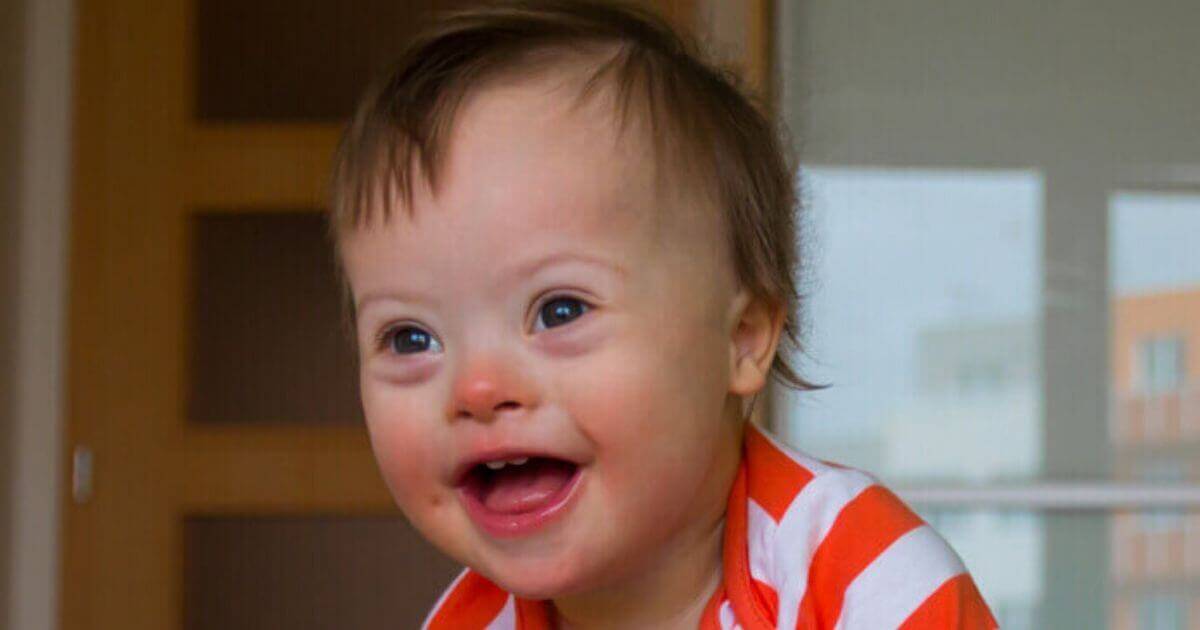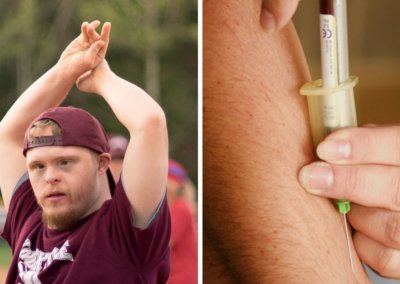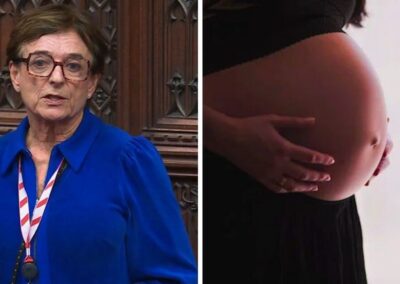Figures published today show that the number of babies born with Down’s syndrome has dropped by 30% in NHS hospitals that have introduced new non-invasive prenatal tests.
The figures, released as a result of a number of Freedom of Information requests, show that among the 26 hospitals that provided the tests, there was a change in the birthrate for babies with Down’s syndrome from 1 in 956 births in 2013 to 1 in 1,368 in 2017.
Down’s syndrome advocates are calling on the Government to halt the roll-out of the new tests and undertake an inquiry into the impact that the tests are having on the birth numbers of babies with Down’s syndrome.
The Department of Health has previously admitted that no assessment was made of the impact that the roll-out of the new tests will have on the lives of people with Down’s syndrome.
Collete Lloyd, whose daughter Katie, 22, has Down’s syndrome obtained the figures. She told The Times that she would struggle to explain to her daughter how the tests could be justified, saying:
“How would I tell her, ‘We have a test so that women can make a choice of whether they want to keep a baby like you or not’? It is not a pro-choice or pro-life thing at all. It is the woman saying: ‘I want a baby but I don’t want a baby like that.’”
Only four babies were born in Oxfordshire this year with the condition compared with 12 in 2015.
The release of the figures comes as a recent report revealed that pregnant mothers who refuse to abort their children with Down’s syndrome are being pressured by some medical professionals to change their decision.
One mother, whose child is now three-years-old, said medical professionals told her they could leave her baby with Down’s syndrome to die if it was struggling after birth.
Another mum told how even at 38 weeks pregnant she was being offered an abortion. Currently, abortion for disabilities including Down’s syndrome, cleft lip and club foot is legal right through to birth in England, Wales and Scotland, and 90% of babies with Down’s syndrome identified in the womb are aborted.
Catherine Robinson, spokesperson for Right To Life UK said:
“Our current law allows babies with Down’s syndrome to be aborted right through to birth. Already 90% of babies diagnosed in the womb with Down’s syndrome are aborted in the UK. The figures released today show that new non-invasive prenatal tests are likely to lead to even more babies who have Down’s syndrome being aborted.
“The Government should not be rolling out these tests if there is evidence that they are leading to more babies with Down’s syndrome being aborted. Now there is clear evidence this is the case, it’s time that the Government pulled the rollout.”
Lynn Murray, spokesperson for the Don’t Screen Us Out campaign said:
“As a mother of a 19-year-old daughter who has Down’s syndrome, I see every day the unique value she brings to our family and the positive impact she has on others around her.
“The figures released today show that the fears of the Down’s syndrome community that rolling out these tests would lead to a large drop in the number of babies with Down’s syndrome were not unfounded.
“We are calling on the Government to halt preparations to further roll-out the tests on the NHS immediately and to undertake an urgent inquiry into the impact that these tests are having on birth numbers of babies with Down’s syndrome.”












